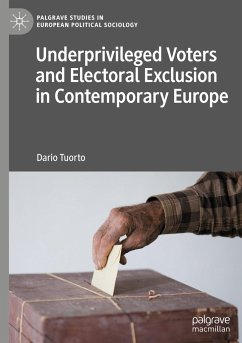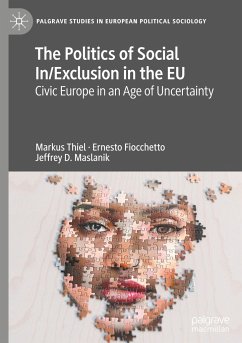
Democracy Without Politics in EU Citizen Participation
From European Demoi to Decolonial Multitude
Versandkostenfrei!
Versandfertig in 6-10 Tagen
113,99 €
inkl. MwSt.
Weitere Ausgaben:

PAYBACK Punkte
57 °P sammeln!
How does the dominant understanding(s) of the demo(i)cratic subject in the EU, and of democracy more broadly, shape the EU's democratic innovations on 'citizen participation'? What are the politically and normatively preferable alternatives, both in terms of the conceptualisation of the democratic subject in the EU and in the ensuing political practices? The book addresses these questions combining a political theory with a political sociology perspective, contrasting the 'democracy without politics' approach of the EU in the context of the Conference on the Future of Europe with that of ongoi...
How does the dominant understanding(s) of the demo(i)cratic subject in the EU, and of democracy more broadly, shape the EU's democratic innovations on 'citizen participation'? What are the politically and normatively preferable alternatives, both in terms of the conceptualisation of the democratic subject in the EU and in the ensuing political practices? The book addresses these questions combining a political theory with a political sociology perspective, contrasting the 'democracy without politics' approach of the EU in the context of the Conference on the Future of Europe with that of ongoing transnational activist processes. In doing so, it develops an agonistic alternative to 'the people(s)' as the political imaginary of democracy in the EU, which is based on the idea of the 'decolonial multitude'. Thus, the book puts forward a diagnosis of current debates on EU democratic legitimacy as well as proposing an alternative.












